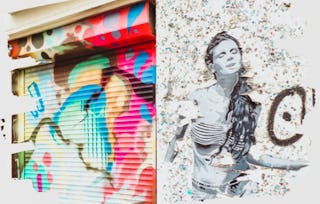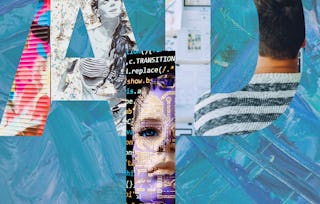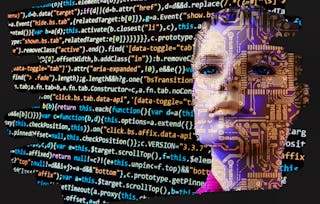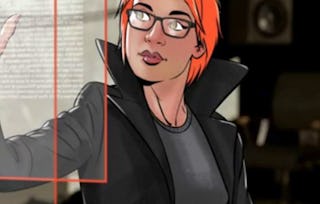This course is designed to build upon a learner's search skills and expertise in the information literacy concepts that underpin scholarship at college or university. This badge incentivizes them to continue improving their information literacy competencies over their academic and workplace career. By participating in this course, one can use these advanced search skills to save time conducting literature reviews, efficiently gather and organize information, ethically use sources, and protect their own intellectual property.

Advanced Information Literacy
Ends soon: Gain next-level skills with Coursera Plus for $199 (regularly $399). Save now.

Advanced Information Literacy
This course is part of Applied Digital Literacy Specialization



Instructors: Nicole Thomas
2,614 already enrolled
Included with
What you'll learn
Articulate an information need.
Identify quality information sources.
Effectively and ethically use diverse information sources.
Skills you'll gain
Details to know

Add to your LinkedIn profile
See how employees at top companies are mastering in-demand skills

Build your subject-matter expertise
- Learn new concepts from industry experts
- Gain a foundational understanding of a subject or tool
- Develop job-relevant skills with hands-on projects
- Earn a shareable career certificate

There are 5 modules in this course
This module includes the course welcome. It also covers the concept of formal and informal information sources in an open scholarship environment (ie. alternative publishing platforms, open access, and paid/proprietary subscriptions). Students will understand the economic and political realities of disseminating information at the federal and global levels. They will also evaluate the information sources they consult for currency, relevancy, authority, accuracy, and bias.
What's included
5 videos3 readings1 assignment1 peer review2 discussion prompts
Information has value, therefore, it must be properly cited to avoid plagiarism. Students learn how to organize their project’s references, and properly employ citation conventions using citation management tools and style manuals to avoid plagiarizing. Students learn how multimedia is licensed for reuse with varying degrees of restriction using Creative Commons licensing. They learn how to provide attribution to various scholarly multimedia (images, audio records, and videos) they consult, as well as how to license their own work.
What's included
4 videos9 readings1 assignment1 peer review3 discussion prompts
This module covers brainstorming your initial project idea to create a compelling and manageable research statement. Students will then learn to identify keywords from the statement for purposes of searching and expand upon those words using synonyms. Advanced Boolean, truncation, wildcard, and phrasal searching will also be covered.
What's included
3 videos6 readings4 assignments1 peer review4 discussion prompts
In this module you will employ the search strategies you have developed in module three and search relevant information sources (databases, organizational websites, government repositories, and alternative platforms) using advanced database search tools such as controlled vocabulary, cited references, and bibliography mining. You will use the citation management tool of your choice from module two.
What's included
9 videos3 readings1 assignment1 peer review4 discussion prompts
This is the culmination where you will work on crafting a research topic/argument and develop three points that support your argument from the research you do using the Internet, Google Scholar, and databases available to you through your local library or public university/college.
What's included
1 video2 readings2 peer reviews1 discussion prompt
Earn a career certificate
Add this credential to your LinkedIn profile, resume, or CV. Share it on social media and in your performance review.
Instructors


Offered by
Explore more from Personal Development
 Status: Free Trial
Status: Free TrialThe State University of New York
 Status: Free Trial
Status: Free TrialThe State University of New York
 Status: Free Trial
Status: Free TrialThe State University of New York
 Status: Free Trial
Status: Free TrialThe University of Sydney
Why people choose Coursera for their career





Open new doors with Coursera Plus
Unlimited access to 10,000+ world-class courses, hands-on projects, and job-ready certificate programs - all included in your subscription
Advance your career with an online degree
Earn a degree from world-class universities - 100% online
Join over 3,400 global companies that choose Coursera for Business
Upskill your employees to excel in the digital economy
Frequently asked questions
To access the course materials, assignments and to earn a Certificate, you will need to purchase the Certificate experience when you enroll in a course. You can try a Free Trial instead, or apply for Financial Aid. The course may offer 'Full Course, No Certificate' instead. This option lets you see all course materials, submit required assessments, and get a final grade. This also means that you will not be able to purchase a Certificate experience.
When you enroll in the course, you get access to all of the courses in the Specialization, and you earn a certificate when you complete the work. Your electronic Certificate will be added to your Accomplishments page - from there, you can print your Certificate or add it to your LinkedIn profile.
Yes. In select learning programs, you can apply for financial aid or a scholarship if you can’t afford the enrollment fee. If fin aid or scholarship is available for your learning program selection, you’ll find a link to apply on the description page.
More questions
Financial aid available,
¹ Some assignments in this course are AI-graded. For these assignments, your data will be used in accordance with Coursera's Privacy Notice.



